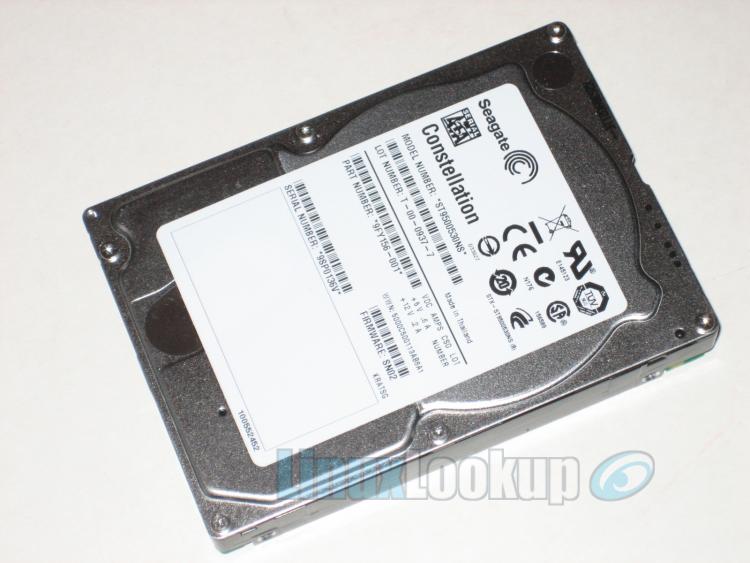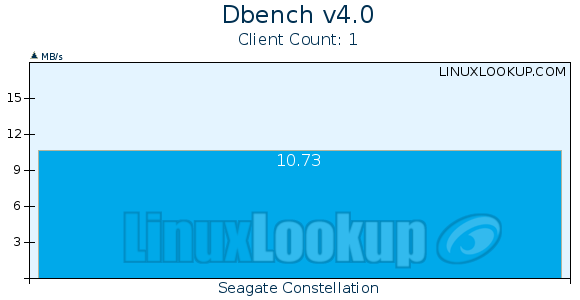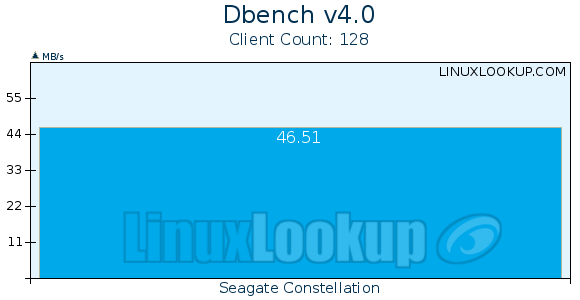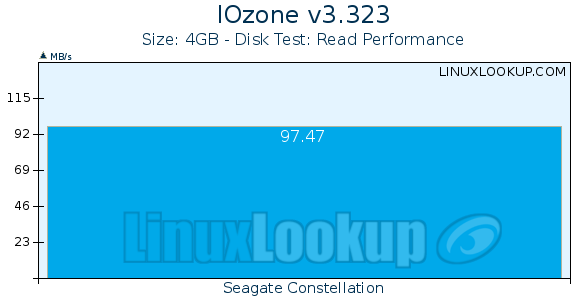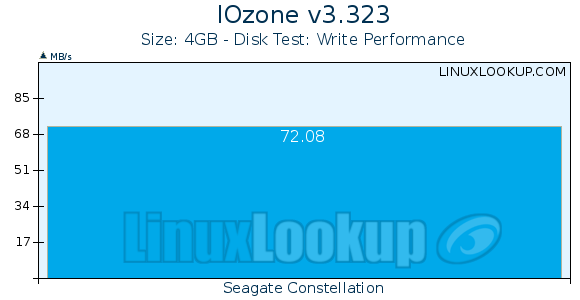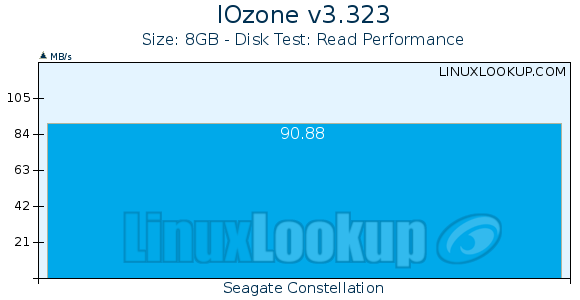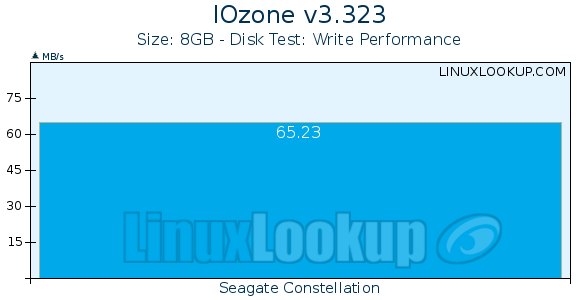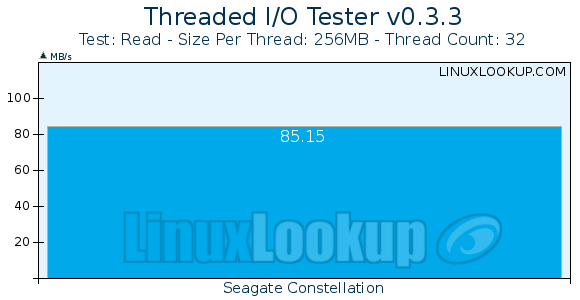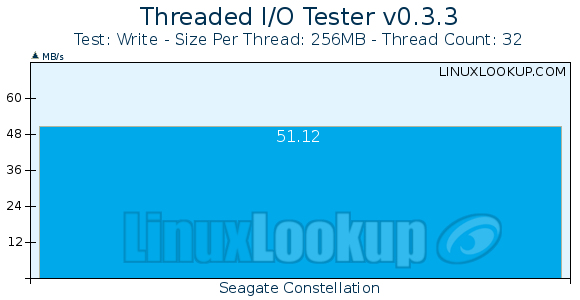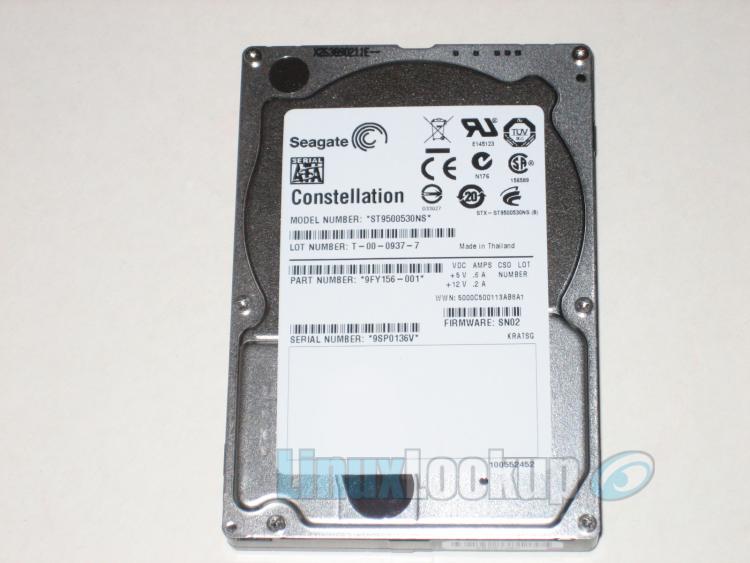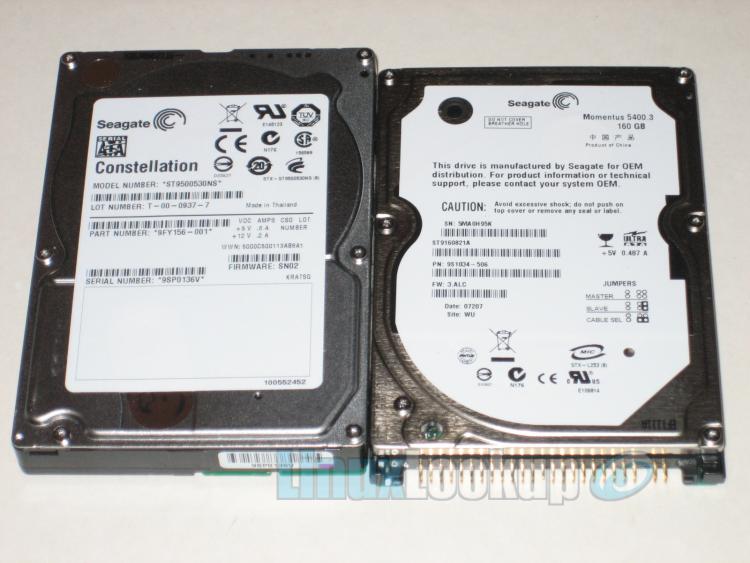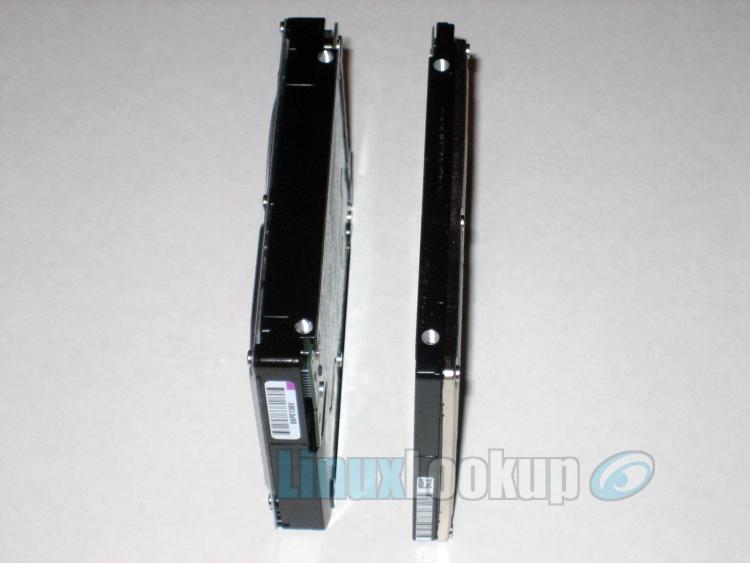Seagate Constellation Hard Drive Review
Known for their reliability and industry's firsts, Seagate is once again leading the way in enterprise-class storage solutions with the introduction of two new drive models, the 2.5-inch Constellation and the 3.5-inch Constellation ES hard drives. Today we're going to review the Seagate Constellation SATA 500GB Hard Drive, but first let me tell you a little more about this new line-up of enterprise drives.
The Constellation product line
Constellation ES is a fourth-generation 3.5-inch 7200-RPM Drive and a direct replacement to Seagate’s aging Barracuda ES product. Available in 500GB, 1TB & 2TB capacities, you may choose from either a 3Gb/s SATA with 32MB Cache or 6Gb/s SAS 2.0 interface with 16MB Cache. The Constellation product line also offers a smaller 2.5-inch form-factor with lesser capacities (160GB or 500GB) and identical interface options.
On paper these new drives may sound identical, but variation in form-factor does play a roll addressing their own individual application. For example, the 3.5-inch would be best applied in a NAS/SAN unit, where as the 2.5-inch drive is best suited for blade servers or workstations. Regardless of use, the Constellation product line includes a combination of features that enable high capacities, increased power efficiency, enterprise-class reliability, and data security.
Both drives also include Seagate PowerChoice, which decreases power consumption by up to 54% for record power savings in enterprise environments. Now that's out of the way, lets shift focus back to the Seagate Constellation 7200 SATA 3Gb/s 500-GB Hard Drive (2.5-inch).
Specifications
- Model Number: ST9500530NS
- Interface: SATA 3Gb/s
- Cache: 32MB
- Capacity: 500GB
- Areal density (avg): 283Gb/in2
- Guaranteed Sectors: 976,773,168
Physical
- Height: 14.8mm (0.583 in)
- Width: 70mm (2.76 in)
- Length: 100.5mm (3.957 in)
- Weight: 196g (0.43 lb)
Performance
- Spin Speed 7,200 RPM
- Average latency: 4.16ms
- Random read seek time: 8.0ms
- Random write seek time: 8.4ms
Reliability
- MTBF: 1,200,000 hours
- Annual Failure Rate: 0.73%
Power
- 12V start max current: 0.65A
- 5V start max current: 0.40A
- Average idle power: 2.71W
Acoustics
- Acoustics (Idle Volume): 2.3 bels
- Acoustics (Seek Volume): 2.6 bels
A closer look at Constellation
Side-by-side we can see how the Constellation 2.5-inch is slightly higher than a standard 2.5-inch drive. You're not going to be able to squeeze this into a notebook or netbook PC, but then again why would you want to? As stated previously, Constellation drives are designed and intended for enterprise application. This of course doesn't mean you couldn't use it in a workstation or desktop PC though. Just be sure your chassis has 2.5 drive bays, otherwise a mounting bracket such as the SilverStone 3.5" to 2.5" Drive Bay Converter can be purchased from an online retailer for under ten dollars.
As far as value goes, the cost is hovering around $0.40 per Gigabyte. Which is fair for an enterprise-class drive. But for the sake of perspective, a Seagate Barracuda 7200 500 GB (7200RPM SATA 3Gb/s 16MB Cache) drive is around $0.11 per Gigabyte. Personally I'd like to see this come down a bit more, though really I am comparing apples to oranges now.
Constellation hard drive models have PowerChoice technology which Seagate claims to deliver the highest power-reduction savings ever offered in an enterprise-class HDD, and provide flexible, user-manageable options to deliver power savings without sacrificing performance, data integrity, or reliability. In addition, the Constellation family of drives are backed with field-proven, enterprise-grade reliability and rated at a full 1.2 million hours mean time between failures (MTBF).
Benchmarks
Test System
- Processor: Intel Core CPU 750 @ 2.79GHz (Total Cores: 4)
- Motherboard: Gigabyte P55-UD3R
- Chipset: Intel Lynnfield
- System Memory: 7896MB Corsair XMS3 DDR3
- Disk: 500GB ST9500530NS
- Graphics: ATI Radeon HD 5700 Series 1024MB
- OS: Ubuntu 9.10, Kernel: 2.6.31-21-generic (x86_64)
- File-System: ext4
- Display Driver: fglrx 8.72.5
- OpenGL: 3.2.9756
- Screen Resolution: 1680x1050
Dbench is a filesystem benchmark that generates load patterns similar to those of the commercial Netbench benchmark, but without requiring a lab of Windows load generators to run. It is now considered a de-facto standard for generating load on the Linux VFS. Here we simulate the load of 1 client.
Simulating the load of 128 clients.
Iozone tests the speed of sequential I/O to actual files. Therefore, this measurement factors in the efficiency of your machine's file system, operating system, C compiler, and C runtime library. It produces a measurement which is the number of bytes per second that your system can read or write to a file. Here we simulate a 4GB sequential read.
Simulating a 4GB sequential write.
Simulating a 8GB sequential read.
Simulating a 8GB sequential write.
Tiotest is a file system benchmark especially designed to test I/O performance with multiple running threads. Here we read 32 concurrent I/O threads, each 256MB in size.
Here we write 32 concurrent I/O threads, each 256MB in size.
Gallery
Conclusion
The Good - Pros- Decent peak throughput
- High-reliability enterprise-class product
- Excellent power efficiency
The Bad - Cons
- Cost vs capacity could be better
The Ugly - Issues
- N/A
The Verdict - Opinion
Enterprise drives are usually engineered with reliability in mind over speed. Though this is still the case with Seagate's Constellation Series, there is a performance gain when compared to competing products from other manufactures.
I was on the fence when scoring the cost/value. As expected, we pay a premium for enterprise-class product, but decided to give a lower score as there should be more wiggle room on price for the SATA version of these Constellation drives.
Over all, Seagate makes some of the best storage products on the planet and the Constellation Series is well worth your purchase.
